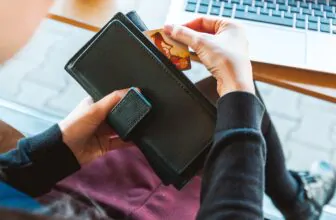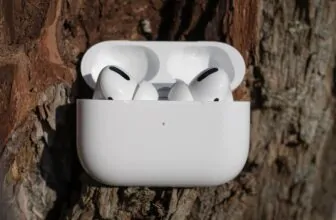Table of Contents
Vlogging has become more than just a hobby; it’s a legitimate career for many content creators. Having the right camera is crucial for creating high-quality content, and one of the most desired features in a vlogging camera is a flip-out screen. This feature allows vloggers to see themselves while filming, ensuring they stay in frame and the focus remains sharp. Here’s a comprehensive guide to the best vlogging cameras with a flip screen in 2024.

What is the Best Flip Screen Vlogging Camera in 2024?
When choosing a vlogging camera, several factors come into play, including video quality, ease of use, and additional features like image stabilization and audio input. Flip screens are particularly important for vloggers who need to see themselves while recording. Here are some of the top models available in 2024.
Sony ZV-1 Mark II (Best Overall Camera with Flip Screen for Vlogging)
Sony ZV-1 II Vlog Camera for Content Creators and Vloggers
The Sony ZV-1 Mark II is an excellent all-around camera for vloggers. It features a 1-inch sensor, which provides outstanding video quality in various lighting conditions. The flip-out screen makes it easy to monitor yourself while filming, and the camera’s lightweight design is perfect for handheld shooting.
- Key Features:
- 1-inch Exmor RS CMOS sensor
- 4K video recording at 30fps
- Real-time Eye AF and Real-time Tracking
- Directional 3-capsule mic with wind screen
- Background defocus and Product Showcase setting
- Pros:
- Exceptional video quality
- Compact and lightweight
- User-friendly interface
- Advanced autofocus capabilities
- Cons:
- No interchangeable lenses
- Limited battery life
Canon EOS M50 Mark II (Best Budget Camera with Flip Screen)
Canon EOS M50 Mark II
For those on a budget, the Canon EOS M50 Mark II is a fantastic choice. It offers impressive video capabilities and a fully articulating touchscreen at a price that’s accessible to many vloggers.
- Key Features:
- 24.1MP APS-C CMOS sensor
- Dual Pixel CMOS AF
- 4K UHD 24p video recording
- Vari-angle touchscreen LCD
- Built-in Wi-Fi and Bluetooth
- Pros:
- Affordable price
- High-quality video and stills
- Excellent autofocus system
- Compact and lightweight design
- Cons:
- 4K video is cropped
- Limited battery life
Sony ZV-E10 (Great Vlogging Camera with Flip Screen)
Sony Alpha ZV-E10 Interchangeable Lens Mirrorless for Vloggers
The Sony ZV-E10 is another great option for vloggers looking for a versatile camera. It features an APS-C sensor and interchangeable lenses, offering more flexibility for different shooting scenarios.
- Key Features:
- 24.2MP APS-C Exmor CMOS sensor
- 4K video recording
- Real-time Eye AF and Real-time Tracking
- Fully articulating touchscreen
- Directional 3-capsule mic with wind screen
- Pros:
- Interchangeable lens system
- High-quality video and stills
- Advanced autofocus features
- Lightweight and portable
- Cons:
- No in-body image stabilization
- Battery life could be better
Canon PowerShot G7X Mark III (Compact Vlogging Camera with Flip Screen)
Canon PowerShot G7X Mark 3
The Canon PowerShot G7X Mark III is a compact camera that packs a punch, making it ideal for vloggers who need a portable solution without sacrificing video quality.
- Key Features:
- 20.1MP 1-inch CMOS sensor
- 4.2x optical zoom lens (24-100mm equivalent)
- 4K video recording
- Flip-up touchscreen LCD
- Built-in Wi-Fi and Bluetooth
- Pros:
- Compact and easy to carry
- Excellent video quality
- Fast and accurate autofocus
- Good low-light performance
- Cons:
- No mic input
- Battery life is average
Sony a6600
Sony Alpha A6600 Mirrorless Camera
The Sony a6600 is a high-performance camera that is great for vloggers looking for professional-quality video. It features in-body image stabilization, which helps produce smooth footage even when shooting handheld.
- Key Features:
- 24.2MP APS-C Exmor CMOS sensor
- 5-axis in-body image stabilization
- 4K HDR video recording
- Real-time Eye AF and Real-time Tracking
- Vari-angle touchscreen LCD
- Pros:
- Exceptional video quality
- In-body image stabilization
- Long battery life
- Advanced autofocus features
- Cons:
- Higher price point
- Complex menu system
Fujifilm X-S10 (Best Vlogging Camera with Flip Screen for Fuji Shooters)
Fujifilm X-S10 Mirrorless Digital Camera
Fujifilm’s X-S10 is an excellent choice for vloggers who prefer the Fuji system. It combines great video features with a compact and user-friendly design.
- Key Features:
- 26.1MP APS-C X-Trans CMOS 4 sensor
- 5-axis in-body image stabilization
- 4K video recording at 30fps
- Vari-angle touchscreen LCD
- Film simulation modes
- Pros:
- Excellent image and video quality
- Robust in-body image stabilization
- Compact and well-built
- User-friendly interface
- Cons:
- No headphone jack
- Battery life is average
Insta360 Go 3 (Best Vlogging Camera with Flip Screen for POV)
The Insta360 Go 3 is perfect for vloggers who want a compact, wearable camera that can capture unique perspectives. Its small size and versatility make it an excellent choice for point-of-view shots.
- Key Features:
- 1/2.3-inch sensor
- 1440p video recording
- FlowState stabilization
- Waterproof up to 4 meters
- Magnetic body for easy mounting
- Pros:
- Extremely compact and portable
- Great stabilization
- Versatile mounting options
- Easy to use
- Cons:
- Limited video resolution compared to larger cameras
- Shorter battery life
Panasonic Lumix GH6 (Best Vlogging Camera with Flip Screen for Pros)
The Panasonic Lumix GH6 is a professional-grade camera that offers exceptional video quality and advanced features for serious vloggers.
- Key Features:
- 25.2MP Micro Four Thirds sensor
- 5-axis in-body image stabilization
- 6K video recording
- Vari-angle touchscreen LCD
- Dual native ISO
- Pros:
- Outstanding video quality
- Robust in-body image stabilization
- Professional-grade features
- Versatile lens options
- Cons:
- Expensive
- Larger and heavier than other options
7 Reasons Why Flip Screens Are So Useful on Vlogging Cameras
1. Self-Filming
A flip screen allows vloggers to see themselves while recording, ensuring they are properly framed and in focus. This is particularly important for solo content creators who do not have a camera operator.
2. Real-Time Monitoring
With a flip screen, you can monitor what you are filming in real-time. This allows you to make adjustments on the fly, ensuring that your shots are perfect.
3. Confidence On Camera
Being able to see yourself while recording can boost your confidence on camera. You can ensure that you look your best and that your expressions match the tone of your content.
4. Interactive Content
Flip screens enable vloggers to create more interactive content. You can easily show products, demonstrate techniques, or engage with your audience directly while keeping an eye on the shot.
5. Control Over the Environment
Seeing the screen while filming allows you to adjust the environment, such as lighting and background elements, to enhance the quality of your videos.
6. Improved Engagement
Being able to see yourself while filming helps maintain eye contact with the lens, which can improve viewer engagement and make your videos feel more personal.
7. Versatility
Flip screens add versatility to your filming setup. You can shoot from different angles, including high or low positions, and still see what you are capturing.
What If You Can’t Buy a Flip Screen Vlogging Camera?
Use a Mirror
If your camera doesn’t have a flip screen, using a mirror can be a simple solution. Position a mirror behind your camera so you can see the reflection of the screen.
Use Your Smartphone
Many cameras come with apps that allow you to control and monitor the camera from your smartphone. This can be a great alternative to a flip screen.
External Monitor
An external monitor can be attached to your camera’s hot shoe or via HDMI. This provides a larger and often more detailed view of your shot.
Wi-Fi Monitoring
Some cameras offer Wi-Fi monitoring, allowing you to use a tablet or computer to view the live feed from your camera. This can be particularly useful for more complex shooting setups.
Test and Learn
Before you start filming, do a few test shots to ensure that everything is set up correctly. This can help you catch any framing or focus issues before you begin your actual recording.
7 Tips for Using a Camera With Flip Screen
Get Familiar with the Flip Screen Mechanics
Understand how your camera’s flip screen works, including how to flip it out and adjust its angle. This will help you use it more effectively while filming.
Adjust Your Eye-Line
When using a flip screen, try to maintain eye contact with the camera lens rather than looking at the screen. This will create a more engaging video for your viewers.
Use Sunglasses
If you find it difficult to avoid looking at the flip screen, wearing sunglasses can help mask your eye movements and keep your focus on the lens.
Use the Grid Display
Enable the grid display on your flip screen to help with framing and composition. This can be particularly useful for maintaining the rule of thirds.
Test Different Angles
Experiment with different shooting angles using your flip screen. This can add variety to your videos and make them more dynamic.
Monitor Lighting Conditions
Use the flip screen to check lighting conditions while filming. Adjust your position or lighting setup as needed to ensure optimal exposure.
Flip with Care
Be gentle when flipping out the screen to avoid damaging the hinge mechanism. Treat your camera with care to prolong its lifespan.
FAQs about Flip Screen Vlogging Cameras
Q: Can I vlog without a flip screen? A: Yes, it’s possible to vlog without a flip screen by using alternatives like external monitors, smartphone apps, or mirrors to help with framing.
Q: Do flip screens affect the camera’s durability? A: Flip screens can add a bit of complexity to the camera’s design, but with careful use, they do not significantly impact durability.
Q: Are flip screen cameras more expensive? A: Not necessarily. There are budget-friendly options available with flip screens, such as the Canon EOS M50 Mark II.
Q: Can flip screens be used for photography as well? A: Absolutely. Flip screens are useful for both video and photography, especially for shooting at difficult angles.
Q: Do all flip screen cameras have touch functionality? A: Most modern flip screen cameras include touch functionality, but it’s always good to check the specifications before purchasing.
Conclusion
Choosing the right vlogging camera is essential for creating high-quality content and engaging with your audience effectively. In 2024, cameras with flip-out screens are indispensable tools for vloggers, offering a range of benefits from real-time monitoring to enhanced versatility.
From the Sony ZV-1 Mark II, which stands out as the best overall camera, to the Canon EOS M50 Mark II for budget-conscious vloggers, and the Panasonic Lumix GH6 for professionals, there’s a flip screen camera to suit every need and budget. Each of these cameras brings unique features and capabilities, whether it’s compactness, superior video quality, advanced autofocus, or professional-grade functionality.
The importance of a flip screen cannot be overstated, as it greatly enhances self-filming, boosts confidence on camera, and allows for interactive and engaging content creation. Even if you can’t afford a flip screen camera, alternatives like mirrors, smartphone apps, and external monitors can still help you achieve your vlogging goals.
Utilizing tips for using flip screen cameras, such as familiarizing yourself with the mechanics, adjusting your eye-line, and monitoring lighting conditions, can further improve the quality of your videos. Additionally, engaging with your audience through comments and feedback will help build a community and enhance your content over time.
As you venture into vlogging or upgrade your current setup, consider these top vlogging cameras with flip screens to elevate your content creation. With the right camera and techniques, you’ll be well on your way to producing professional and captivating vlogs that resonate with your audience.














